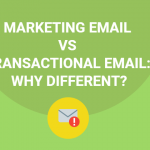RULES for site admins and users
A successful website having more visitors, users and subscribers. And that’s why, there are more possibilities to get hacked.
As per recent study, there is an attack every 39 seconds on the website. Due to non-secure usernames and passwords, the attackers have more chance of success. Here are five mandatory rules for better Login Security.
1) USE STRONG PASSWORD FOR BETTER LOGIN SECURITY
The first rule is always use strong password. Password should be at least 12 characters long.
Strong password is combination of characters (upper-case and lower-case), numbers and allowed special characters (symbols).
Avoid to use sequential characters (abc) and numbers (123). Password cannot contain a dictionary word.
2) BEST LOGIN SECURITY PRACTICE SAYS CHANGE PASSWORD EVERY 90 DAYS
There is a big black-market for buying and selling of login credentials and passwords.
If you have used the same password for more than 90 days, then there is possibility as your login credentials get compromised.
Mostly you can not change your username, so you have to change your password periodically.
3) IN LOGIN SECURITY IT IS MANDATORY TO USE A UNIQUE PASSWORD FOR EVERY ACCOUNT
A best practice for securing your online accounts is using Unique passwords for each and very website account.
Never use same password for more than one website. As per recent study, 65% of people use the same password everywhere.
4) START USING TWO-FACTOR AUTHENTICATION
Two-factor authentication, is multiple-step verification. This is an authentication technique to double-check that your identity is acceptable.
When you want to sign into your account, website/system will asked for a username and a password – This is the first verification step.
In the second step system will ask for another Authentication. This could be a second password or PIN or OTP.
5) DO NOT SHARE LOGIN CREDENTIALS
Share a login is not good idea. If you want to protect your account and personal information from being misused, then do not share passwords or other login details with anyone.
Get more tips and resources at VEBLOGY.COM
#veblogy #websiteowner #websitedevelopment #securityandrisk #securitymatters



